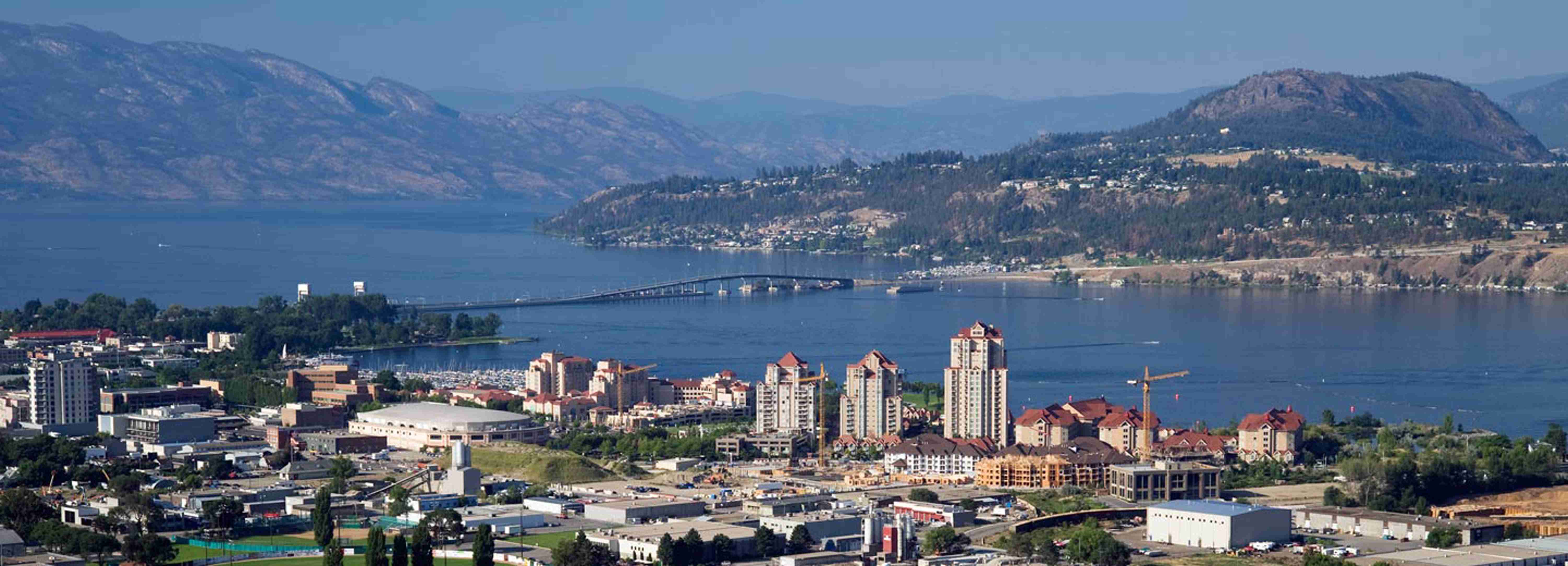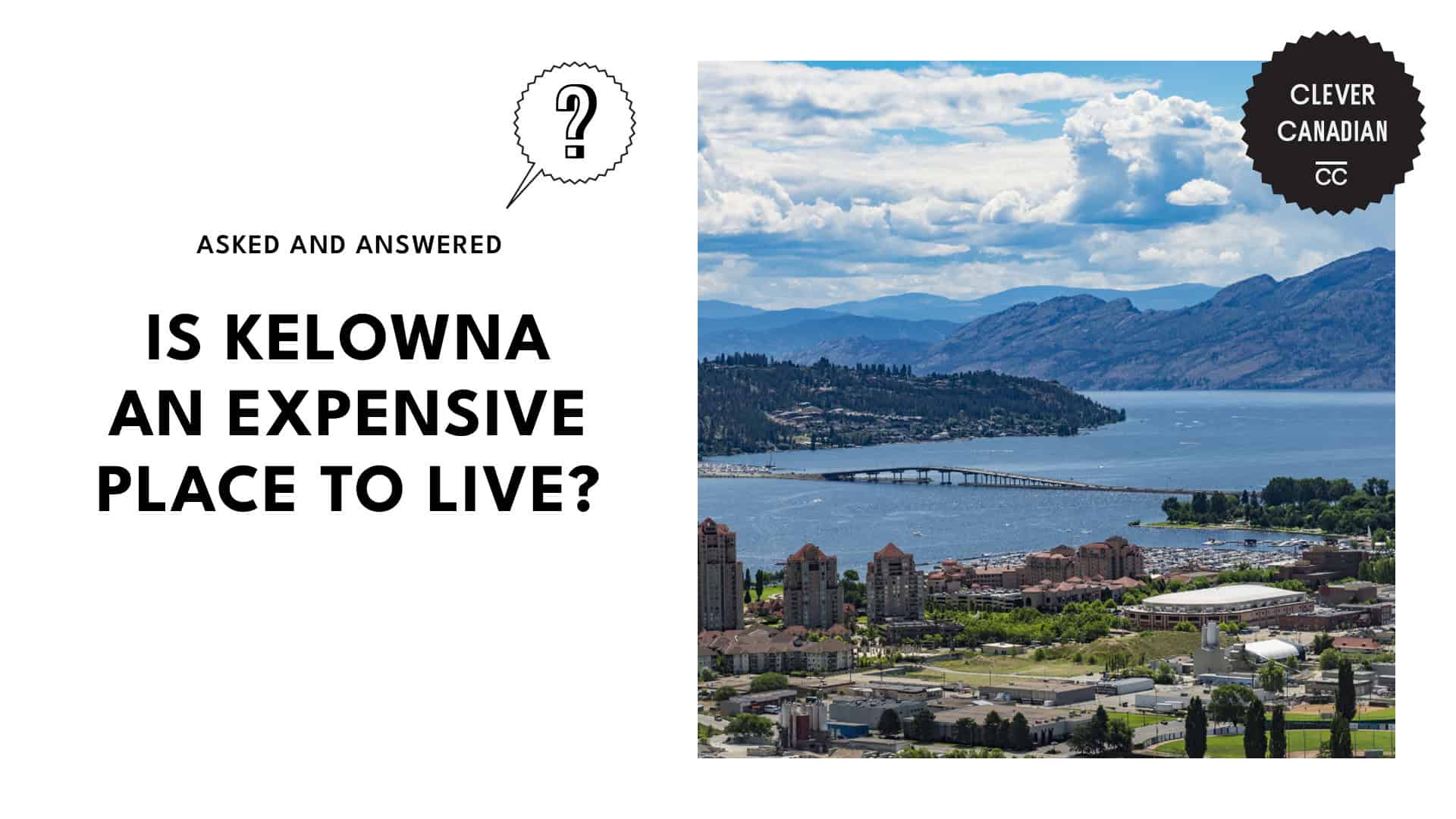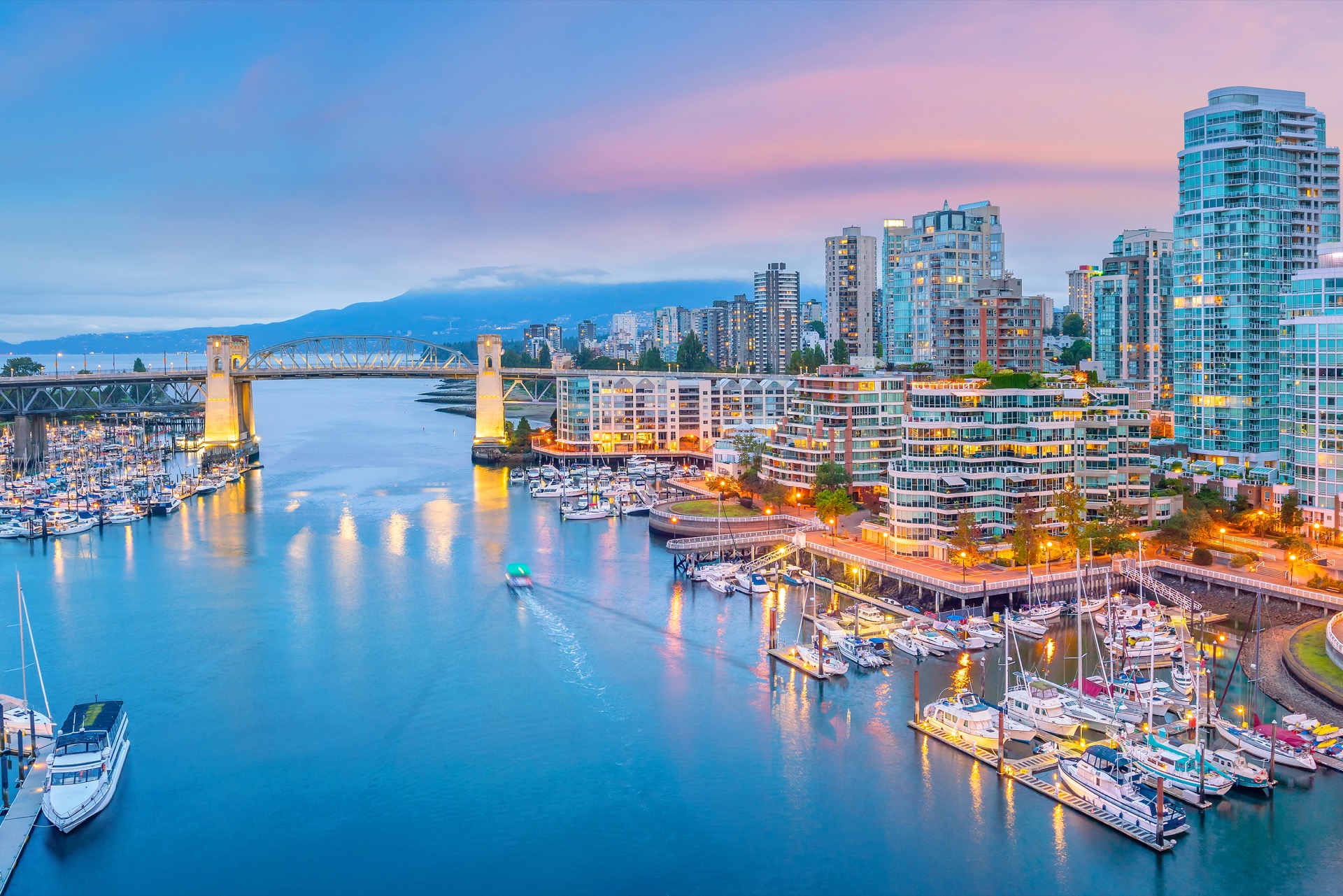Moving From Hamilton To Kelowna
Are you considering a move from Hamilton to Kelowna? If so, you're not alone. Many individuals and families are making the trek from Ontario to British Columbia, drawn by Kelowna's stunning natural beauty, thriving economy, and unparalleled quality of life. But what can you expect from this major life change? From navigating the logistics of relocation to adjusting to a new climate and community, there are many factors to consider. In this article, we'll explore the ins and outs of moving from Hamilton to Kelowna, providing you with the insights and advice you need to make a successful transition.

- Embracing a New Life: Moving from Hamilton to Kelowna
- Is it worth moving to Kelowna?
- What salary do you need to live in Kelowna?
- Is it expensive to live in Kelowna BC?
- Is it cheaper to live in Kelowna or Vancouver?
- FAQ
- What are the main differences between Hamilton and Kelowna that I should consider before making the move?
- How do the job markets in Hamilton and Kelowna compare, and what are the major industries in each city?
- What are the average costs of living in Hamilton and Kelowna, and how do they compare?
- What are some tips for making a successful transition from Hamilton to Kelowna, and what should I prioritize during the moving process?
Embracing a New Life: Moving from Hamilton to Kelowna
Moving from Hamilton to Kelowna can be a significant change, but with the right mindset and preparation, it can be a fantastic opportunity to start a new chapter in your life. Here are some key aspects to consider when making this move:
Cost of Living: What to Expect
One of the most significant differences between Hamilton and Kelowna is the cost of living. Kelowna has a higher cost of living compared to Hamilton, mainly due to the housing market. The median house price in Kelowna is around $730,000, while in Hamilton, it's around $550,000. However, Kelowna's strong economy and growing job market can help offset the higher cost of living.
Job Opportunities: A Growing Economy
Kelowna's economy is thriving, with a strong focus on technology, healthcare, and tourism. The city is home to a growing number of startups and entrepreneurs, making it an attractive destination for those looking for new job opportunities. Additionally, the city's proximity to major cities like Vancouver and Calgary makes it an ideal location for businesses looking to expand.
Lifestyle: Outdoor Activities and Cultural Events
Kelowna offers a unique blend of outdoor activities and cultural events. The city is surrounded by lakes, mountains, and forests, making it a paradise for outdoor enthusiasts. From hiking and biking to water sports and skiing, there's always something to do. Additionally, Kelowna hosts a range of cultural events, including the Kelowna Farmers' Market, the Okanagan Symphony Orchestra, and the Kelowna Art Gallery.
Education: Top-Notch Schools and Universities
Kelowna is home to some of the top-ranked schools and universities in British Columbia. The University of British Columbia's Okanagan campus is located in Kelowna, offering a range of undergraduate and graduate programs. Additionally, the city has several highly rated public and private schools, including Kelowna Secondary School and Okanagan Mission Secondary School.
Housing: Finding the Right Neighbourhood
When moving to Kelowna, finding the right neighbourhood is crucial. Some popular neighbourhoods include the Downtown area, Rutland, and Lake Country. Each neighbourhood has its unique character, with varying levels of affordability and amenities. It's essential to research and visit each area to determine which one best fits your lifestyle and budget.
| Category | Hamilton | Kelowna |
|---|---|---|
| Median House Price | $550,000 | $730,000 |
| Cost of Living Index | 74.8 | 87.2 |
| Unemployment Rate | 5.2% | 4.3% |
| Average Temperature (°C) | 8.4 | 9.1 |
Note: The table provides a comparison of key statistics between Hamilton and Kelowna. The cost of living index is based on a national average of 100, with higher numbers indicating a higher cost of living.
Is it worth moving to Kelowna?

Kelowna is a popular destination in British Columbia, Canada, known for its natural beauty, outdoor recreation opportunities, and growing economy. Whether or not it's worth moving to Kelowna depends on various factors, including your personal preferences, lifestyle, and priorities.
Pros of Moving to Kelowna
Kelowna offers a range of benefits that make it an attractive option for many people. Here are some of the key advantages of moving to Kelowna:
- Natural Beauty: Kelowna is situated in the heart of the Okanagan Valley, surrounded by lakes, mountains, and forests. The city's natural scenery provides endless opportunities for outdoor recreation, including hiking, biking, swimming, and skiing.
- Outdoor Recreation Opportunities: Kelowna has over 200 parks and trails, as well as numerous lakes and beaches, making it an ideal location for outdoor enthusiasts.
- Growing Economy: Kelowna's economy is diversifying, with a strong focus on technology, healthcare, and tourism. The city is also home to a growing number of startups and entrepreneurs.
Cons of Moving to Kelowna
While Kelowna has many advantages, there are also some potential drawbacks to consider:
- Cost of Living: Kelowna has a relatively high cost of living, with prices for housing, food, and transportation above the national average.
- Traffic and Congestion: Kelowna is growing rapidly, which has led to increased traffic and congestion on the city's roads.
- Seasonal Weather: Kelowna experiences a moderate climate, with cold winters and hot summers. This may be a challenge for some people, particularly those who prefer milder weather.
Lifestyle and Community in Kelowna
Kelowna offers a unique blend of urban amenities and small-town charm. Here are some aspects of the city's lifestyle and community:
- Vibrant Downtown Area: Kelowna's downtown area is thriving, with a range of shops, restaurants, and cultural attractions.
- Strong Sense of Community: Kelowna has a strong sense of community, with numerous events and festivals throughout the year.
- Access to Education and Healthcare: Kelowna is home to the University of British Columbia's Okanagan campus, as well as a range of healthcare facilities and services.
What salary do you need to live in Kelowna?

The cost of living in Kelowna, British Columbia, Canada can vary depending on factors such as lifestyle, housing, and personal choices. However, here are some general guidelines to help estimate the salary needed to live comfortably in Kelowna:
Factors Affecting Cost of Living in Kelowna
The cost of living in Kelowna is influenced by several factors, including:
- Housing costs: The cost of renting or buying a home in Kelowna can be relatively high, especially in popular neighborhoods.
- Food prices: Grocery prices in Kelowna are comparable to other cities in Canada, but dining out can be expensive.
- Transportation costs: Owning a car can be costly, but public transportation options are available.
Salary Requirements for Different Lifestyles
The salary needed to live in Kelowna depends on the individual's lifestyle and preferences. Here are some general guidelines:
- Basic lifestyle: A salary of around $40,000-$50,000 per year can provide a basic standard of living, with shared accommodation and limited discretionary spending.
- Comfortable lifestyle: A salary of $60,000-$80,000 per year can provide a comfortable standard of living, with a modest house or apartment and some discretionary spending.
- Luxury lifestyle: A salary of $100,000-$150,000 per year can provide a luxury standard of living, with a high-end house or apartment and significant discretionary spending.
Additional Expenses to Consider
In addition to the salary requirements mentioned above, it's essential to consider other expenses that can impact the cost of living in Kelowna, such as:
- Health insurance: If not covered by an employer, health insurance premiums can add up quickly.
- Recreation and entertainment: Kelowna offers many outdoor activities and cultural events, but these can come at a cost.
- Savings and debt repayment: It's essential to budget for savings and debt repayment to ensure long-term financial stability.
Is it expensive to live in Kelowna BC?

The cost of living in Kelowna, BC can vary depending on factors such as lifestyle, housing, and personal choices. However, here are some general insights to help you determine if living in Kelowna is expensive:
Housing Costs
One of the significant expenses in Kelowna is housing. The city has experienced a housing boom in recent years, driven by its popularity as a retirement destination and its proximity to outdoor recreational activities. As a result, housing prices have increased significantly. Here are some approximate costs:
- Average rent for a one-bedroom apartment: $1,300 - $1,800 per month
- Average sale price for a single-family home: $700,000 - $900,000
- Average sale price for a condominium: $400,000 - $600,000
Food and Transportation
Food and transportation costs in Kelowna are relatively comparable to other major cities in Canada. Here are some approximate costs:
- Average cost of groceries for a week: $100 - $150 per person
- Average cost of a meal at a mid-range restaurant: $15 - $25 per person
- Monthly public transportation pass: $90 - $100
Lifestyle and Leisure
Kelowna offers a wide range of outdoor recreational activities, cultural events, and lifestyle amenities. While these activities can enhance your quality of life, they can also add to your expenses. Here are some approximate costs:
- Average cost of a wine tasting tour: $100 - $200 per person
- Average cost of a round of golf: $50 - $100 per person
- Average cost of a monthly gym membership: $50 - $100 per month
Is it cheaper to live in Kelowna or Vancouver?

The cost of living in Kelowna compared to Vancouver is a crucial consideration for anyone planning to relocate to British Columbia, Canada. While both cities offer a high quality of life, there are significant differences in terms of housing, transportation, and lifestyle expenses.
Housing Costs
The cost of housing is one of the most significant factors affecting the cost of living in Kelowna and Vancouver. Kelowna's housing market is generally more affordable, with the average price of a single-family home hovering around $640,000. In contrast, the average price of a single-family home in Vancouver is over $1.4 million. Here's a breakdown of the average housing costs in each city:
- Kelowna: $640,000 (single-family home), $380,000 (condo)
- Vancouver: $1,400,000 (single-family home), $650,000 (condo)
Transportation and Food Costs
Transportation and food costs are other essential expenses to consider when comparing the cost of living in Kelowna and Vancouver. While Vancouver has a more comprehensive public transportation system, Kelowna has a more affordable public transportation system. In terms of food costs, Kelowna tends to be cheaper, with the average cost of a meal at a mid-range restaurant being around $15-20 per person. In contrast, the average cost of a meal at a mid-range restaurant in Vancouver is around $25-35 per person. Here's a breakdown of the average transportation and food costs in each city:
- Kelowna: $2-3 for a single bus fare, $15-20 for a meal at a mid-range restaurant
- Vancouver: $3-4 for a single bus fare, $25-35 for a meal at a mid-range restaurant
Lifestyle and Recreational Activities
The cost of lifestyle and recreational activities can vary significantly depending on individual preferences. However, Kelowna is known for its outdoor recreational activities, such as hiking, biking, and water sports, which are often free or low-cost. Vancouver, on the other hand, offers a more urban lifestyle with access to a wider range of cultural and entertainment activities, which can come at a higher cost. Here's a breakdown of the average costs of lifestyle and recreational activities in each city:
- Kelowna: free or low-cost outdoor recreational activities, $10-20 for a wine tasting
- Vancouver: $20-50 for a museum or art gallery visit, $50-100 for a concert or sporting event
FAQ
What are the main differences between Hamilton and Kelowna that I should consider before making the move?
When considering a move from Hamilton to Kelowna, it's essential to think about the lifestyle changes you'll experience. Hamilton is an industrial city with a strong manufacturing sector, while Kelowna is a smaller city with a thriving tourism industry. Kelowna offers a more relaxed pace of life, with plenty of outdoor activities and a strong sense of community. In contrast, Hamilton has a more urban feel, with a diverse range of cultural and entertainment options. Additionally, Kelowna has a milder climate, with warmer winters and hotter summers, whereas Hamilton experiences colder winters and hotter, more humid summers.
How do the job markets in Hamilton and Kelowna compare, and what are the major industries in each city?
The job markets in Hamilton and Kelowna have some key differences. Hamilton has a diverse economy with major industries in manufacturing, healthcare, and education. The city is also home to a thriving startup scene, with many incubators and accelerators. In contrast, Kelowna's economy is driven by tourism, with many jobs in the hospitality industry. The city is also known for its agricultural sector, with many orchards and vineyards in the surrounding area. Additionally, Kelowna has a growing tech industry, with many startups and small businesses in the area.
What are the average costs of living in Hamilton and Kelowna, and how do they compare?
The cost of living in Hamilton and Kelowna can vary significantly. Housing costs are generally higher in Kelowna, especially when it comes to single-family homes. However, the cost of renting an apartment or condo is often lower in Kelowna than in Hamilton. When it comes to food and groceries, prices are generally similar in both cities. However, Kelowna has a higher cost of transportation, due to its smaller size and more limited public transit options. On the other hand, Kelowna has lower property taxes and insurance rates, which can help offset some of the higher costs.
What are some tips for making a successful transition from Hamilton to Kelowna, and what should I prioritize during the moving process?
To make a successful transition from Hamilton to Kelowna, it's essential to plan ahead and research thoroughly. Start by researching neighborhoods and finding a place to live that suits your needs and budget. Downsizing can also be a good idea, as the cost of living in Kelowna is often higher than in Hamilton. Additionally, networking and building connections in your new community can help you settle in more quickly. Prioritize getting involved in local activities and joining community groups to meet new people and build a social network. Finally, be prepared for the emotional adjustment of moving to a new city, and give yourself time to settle in and adjust to your new surroundings.
